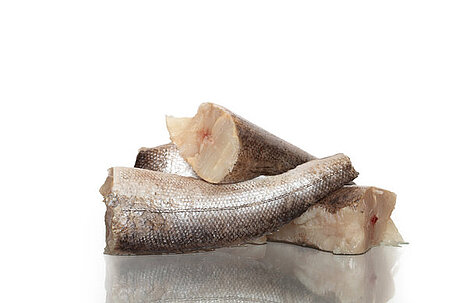Tullibee

Tullibee is a fish that occurs in North America and is also known as cisco, lake herring or chub. It belongs to the salmon family and lives in cold lakes and rivers. Tullibee has a silvery appearance with a pink sheen on the sides and is rich in omega-3 fatty acids, which are good for dogs' health. But is Tullibee suitable for all dogs? In this article, you can find out more about the advantages and disadvantages of Tullibee as an ingredient in dog food.
What is Tullibee?
Tullibee is a small to medium-sized fish that grows between 28 and 40 cm long and weighs between 170 and 900 grams. It feeds mainly on zooplankton and insect larvae, but can also eat fish eggs, fish larvae and small fish. Tullibee is a pelagic fish, which means that it lives in the middle water layer and not at the bottom or on the surface. It is a schooling fish that lives and migrates in large groups.
Tullibee is found in many lakes and rivers in North America, especially in the Great Lakes, where it used to be very common. Today, however, it is threatened by pollution, invasive species such as the alewife or rainbow smelt and overfishing. It is mainly caught by anglers who use it for bait or food. It is also fished commercially and processed into fishmeal or fish oil.
Why is Tullibee good for dogs?
Tullibee has many health benefits for dogs, mainly due to its high omega-3 fatty acid content. These are essential for dogs, which means they must be obtained from food as the body cannot produce them itself. Omega-3 fatty acids have the following positive effects on dogs:
- They promote skin and coat health by reducing inflammation, moisturizing and preventing dandruff.
- They support cardiovascular function by lowering blood pressure, regulating cholesterol levels and reducing the risk of heart disease.
- They strengthen the immune system by increasing the body's defenses and fighting infections.
- They improve brain performance by enhancing learning ability, memory and behavior.
- They relieve joint pain by improving mobility, preventing arthritis and reducing inflammation.
Tullibee is also a good source of protein for dogs, which is important for muscle building, wound healing and hormone production. It also contains many vitamins and minerals such as vitamin A, B12, D, E, calcium, iron, iodine and selenium, which are needed for various bodily functions.
Are there any disadvantages of Tullibee for dogs?
Despite its many benefits, Tullibee can also have some disadvantages for dogs that you should be aware of. For one, Tullibee can cause allergies or intolerances if the dog is sensitive to fish or certain ingredients. This can manifest itself in symptoms such as itching, skin rash, diarrhea or vomiting. In this case, the dog should be taken to the vet and the food changed.
On the other hand, Tullibee may contain heavy metals such as mercury or lead, which can accumulate in the fish's tissue. These can lead to poisoning or chronic illness in dogs if they are ingested in high quantities. To minimize the risk, you should only buy tullibee from clean waters and cook or freeze it well before feeding to kill any parasites.
How do you feed Tullibee to dogs?
Tullibee can be used as part of a balanced diet for dogs that includes both animal and plant ingredients. However, fish should not provide more than 10 percent of the dog's daily calorie requirement to avoid an overdose of omega-3 fatty acids or heavy metals. You should also make sure that your dog drinks enough water, as fish can be salty and increase thirst.
Tullibee can be fed to dogs raw, cooked or dried, depending on the dog's preference and the availability of the fish. However, the bones should always be removed as they can injure the dog or be swallowed. Tullibee can also be mixed with other ingredients such as vegetables, rice or potatoes to make the meal more varied and tasty.
Tullibee is a healthy ingredient for dogs, providing plenty of omega-3 fatty acids, protein, vitamins and minerals. It can promote the health of the skin, coat, heart, brain and joints and strengthen the immune system. However, it can also cause allergies, intolerances or heavy metal exposure if the dog is sensitive to it or eats too much of it.
If you notice any signs of hypersensitivity or poisoning in your dog, you should see your vet immediately. We are not a substitute for a vet, but we try to be as accurate as possible. Every dog reacts differently and we recommend you get a second opinion or consult your vet if in doubt.
Stay healthy and take good care of your four-legged friend!😊